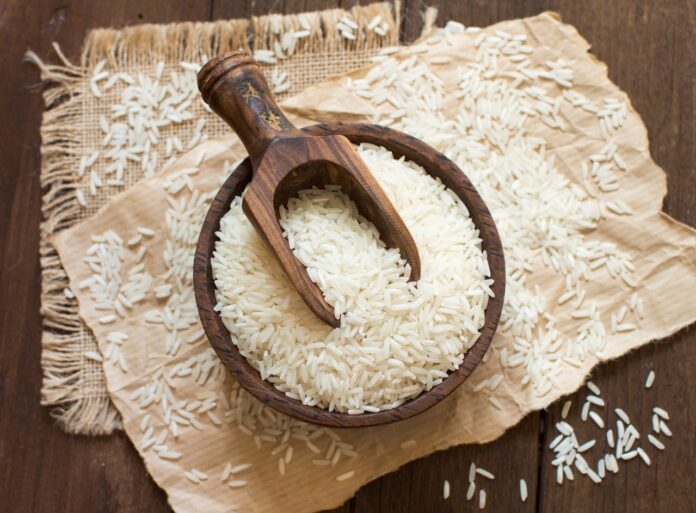NEW DELHI: India gave the go-ahead on Saturday for exports of non-basmati white rice to resume as inventories in the world’s biggest exporter of the grain surge and farmers prepare to harvest a new crop in the coming weeks.
Bigger rice shipments from India would beef up overall global supplies and soften international prices by forcing other major exporters of the staple such as Pakistan, Thailand, and Vietnam to reduce their rates, traders said.
New Delhi set a floor price for non-basmati white rice exports of $490 per metric ton, a government order said. That came a day after the government cut the export tax on white rice to zero.
New Delhi’s decision to allow traders to sell non-basmati white rice on the world market follows a series of moves to ease export restrictions on premium, aromatic basmati and parboiled varieties. On Friday, India also reduced the export duty on parboiled rice to 10% from 20% previously.
Earlier this month, the government removed a floor price for basmati rice exports to help thousands of farmers who complained about a lack of access to lucrative overseas markets such as Europe, the Middle East and the United States.
As the El Nino weather pattern raised the specter of poor monsoon rains, India imposed various curbs on rice exports last year and extended them into 2024 to keep local prices in check ahead of the April-June national election.
Since the 2023 ban on exports, local supplies have picked up, bumping up stocks at government warehouses.
Rice stocks at the state-run Food Corporation of India on Sept. 1 stood at 32.3 million metric tons, 38.6% higher than last year, giving the government ample room to ease rice export curbs.
Buoyed by copious monsoon rains, farmers have planted rice on 41.35 million hectares (102.18 million acres), up from 40.45 million hectares (99.95 million acres) last year and an average of 40.1 million hectares (99.09 million acres) over the last five years.
The decision to allow non-basmati rice exports will raise farm incomes in the countryside and help India regain its position in the global market, said Rajesh Paharia Jain, a New Delhi-based trader.
Despite the 10% export tax on parboiled rice and the floor price of $490 a metric ton, Indian white rice will be competitive in the international market, said B.V. Krishna Rao, president of the Rice Exporters’ Association.




